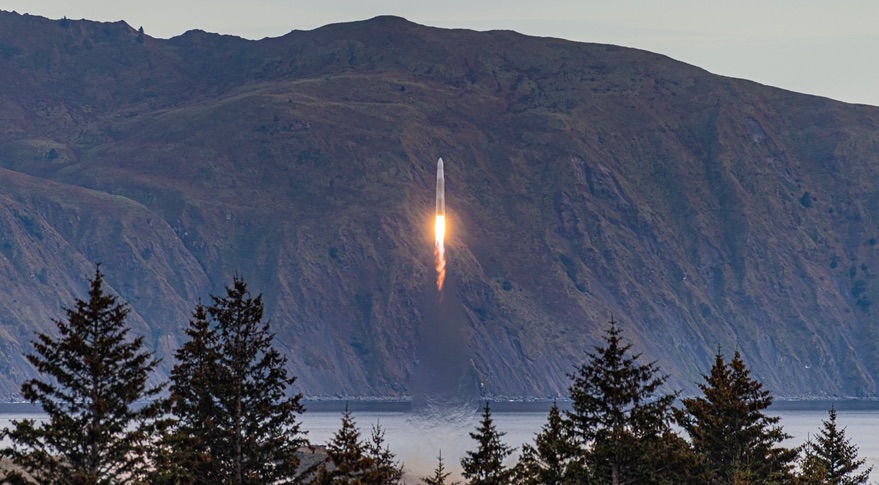WASHINGTON — Small launch vehicle developer Astra will make its second orbital launch attempt in December, three months after an initial launch attempt failed shortly after liftoff.
The company announced Nov. 19 that it has completed testing of the vehicle, known as Rocket 3.2, and will soon ship it from its California headquarters to Pacific Spaceport Complex – Alaska, on Kodiak Island. The company said its 12-day launch period opens Dec. 7, with a window of 2:00 to 5:30 p.m. Eastern each day.
The launch is the second in a campaign of three that the company says it plans to perform to demonstrate that it can reach orbit. Its first orbital launch attempt, Rocket 3.1, failed Sept. 11 when the rocket’s first stage engines shut down about 30 seconds after liftoff, causing the vehicle to fall back to Earth, crashing and exploding not far from the launch pad at Kodiak.
In a Sept. 12 blog post, Astra said that the rocket’s guidance system “appears to have introduced some slight oscillation into the flight, causing the vehicle to drift from its planned trajectory leading to a commanded shutdown of the engines by the flight safety system.” The company hasn’t disclosed additional information about the failure, and company representatives did not respond to questions regarding the cause of the failure and what corrective actions it took.
“We didn’t meet all of our objectives, but we did gain valuable experience, plus even more valuable flight data,” the company said of the Rocket 3.1 launch in that blog post. “This launch sets us well on our way to reaching orbit within two additional flights, so we’re happy with the result.”
Before the Rocket 3.1 launch, Astra executives emphasized that they were taking an iterative process and didn’t expect to reach orbit on their first or even second try. “We don’t intend to hit a hole-in-one here,” said Chris Kemp, chief executive and co-founder of Astra, in a call with reporters in July. At the time the company hoped that the first launch would get through “a nominal first-stage burn” and stage separation, milestones that Rocket 3.1 did not achieve.
Astra did not disclose if Rocket 3.2 would carry any payload. The company refrained from flying a payload on Rocket 3.1, a decision that Adam London, co-founder and chief technology officer, said in July reflected in part the long odds of success of that inaugural launch. “We don’t want to put a payload at risk unnecessarily.”
The Rocket 3.1 mission was the company’s first orbital launch attempt, but the company came close in March, when it was competing in the DARPA Launch Challenge. Astra scrubbed a launch attempt with less than a minute before liftoff on the final day of the competition, losing out on a $2 million prize had that vehicle, called Rocket 3.0, reached orbit.
The company made a second attempt to launch Rocket 3.0 in late March. However, a valve on the rocket malfunctioned while offloading propellant from the rocket after a “wet dress rehearsal,” where the rocket is fueled and goes through a practice countdown. That led to “an overpressurization and, ultimately, the loss of the vehicle,” London said in July.
